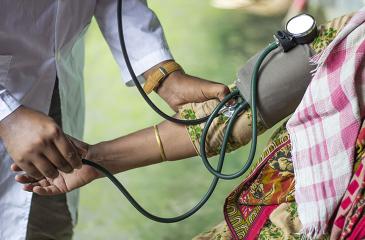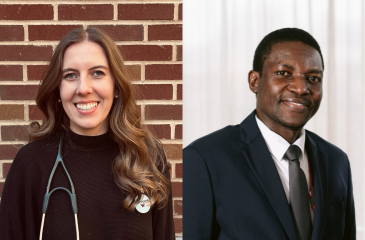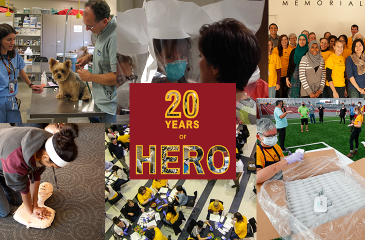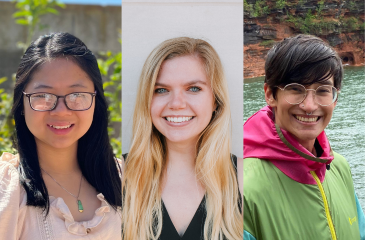Before getting involved with the Mobile Health Initiative (MHI), Drew Adamek was unfamiliar with this model of healthcare delivery.
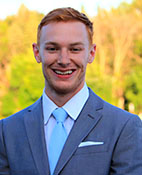
"When I heard about this model of care and that a new program was being implemented right here at the U, I was excited at the opportunity to get involved," said Adamek. "I had been interested in the intersection of medicine and public health for many years, and with the start of the COVID-19 pandemic, the disparate health outcomes in my communities were evident. By getting involved with MHI, I knew I would not only learn valuable skills in front-line healthcare delivery, but also be directly improving health access in my communities, which has been so fulfilling for me."
Adamek says that mobile healthcare makes sense.
"Access to healthcare is a large barrier for many people, whether it be access to transportation, insurance, or having been disenfranchised from the medical system. Therefore, by bringing no-cost healthcare to our communities through relationships with community organizations, we are able to remove some of these barriers. This is essential to continue to combat widespread health disparities in our state and around the country. Additionally, these innovative models of healthcare are so important to save lives and cost by providing care and information early, rather than treating the downstream effects, oftentimes too late, at the emergency department or hospital."
Adamek says his experience at MHI has been greatly impactful and essential to the vision he has of his future in medicine.
"I started on a research project in which I not only gained a significant amount of transferable knowledge and skills, such as healthcare economics and improving our database, but also confidence in my abilities to make a real impact in this field," he said.
MHI's Clinical Director Jonathan Kirsch, MD, served as a faculty mentor to Adamek.
"I presented at the Mobile Healthcare Association Conference last year and was amazed at how our work could impact other mobile health programs and access to healthcare around the country," said Adamek. "In this role and later, in my role managing clinical data, I was impacted in seeing for myself with our data at the level of health access we were providing and the unmet need for healthcare in these communities. For example, I was struck by the high proportion of undiagnosed diabetes and hypertension for our participants."
As a volunteer at MHI events, Adamek participated in blood pressure screenings for their research project HI HOPE. "Here, I saw the intersection of medicine, public health, and research that I hope to model in my career. By meeting patients and offering at-home blood pressure cuffs, we are able to study just how important improved health access is in patients' lives."
A 2023 graduate of the U of M's College of Biological Sciences, Adamek is currently applying to medical school and also plans to obtain an MPH.
"As a physician, I hope to continue the lessons I have learned at MHI to implement innovative strategies of healthcare delivery that effectively serve all of us."
